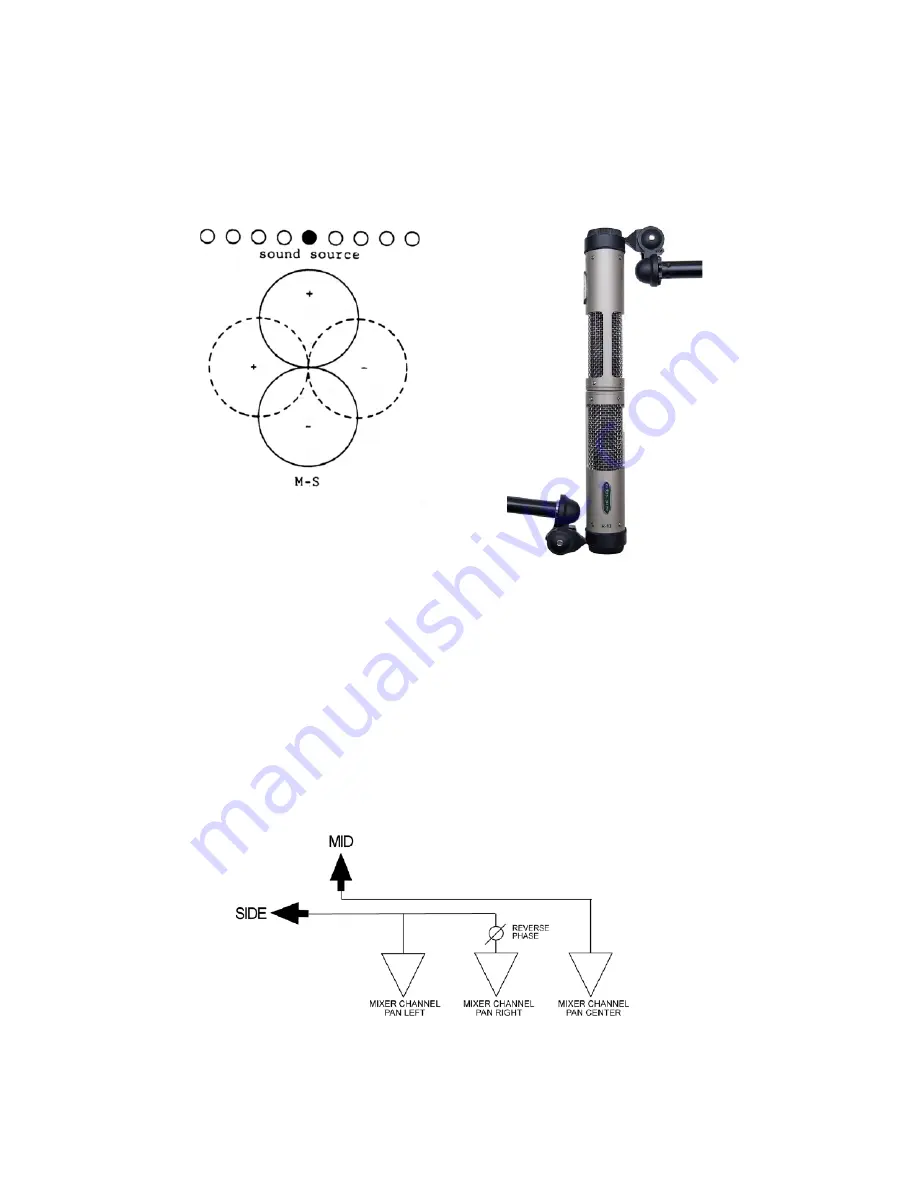
Mid-Side (M-S) Technique
In the early days of stereo radio broadcasting, the mid-side recording technique was developed to
allow for 1) simultaneous stereo and mono feeds from the same mic array and 2) electronic
manipulation of the width of the stereo image.
Figure 2 - Typical M-S Miking Technique
In M-S recording, one mic faces sideways, one faces forward as shown in
Figure 2
, and they are
connected as shown in
Figure 3
. If the outputs of the two microphones are equal (or made equal
using gain controls), the stereo pickup will be similar to that of two microphones placed as a
Blumlein X-Y pair, delivering a wide stereo image.
As you reduce the level of the “side” microphone, the width of the stereo image will narrow
until, with the side microphone turned all the way down, you have just the “mid” mic panned
center for a mono pickup.
Figure 3
Typical M-S connection set-up
14





































